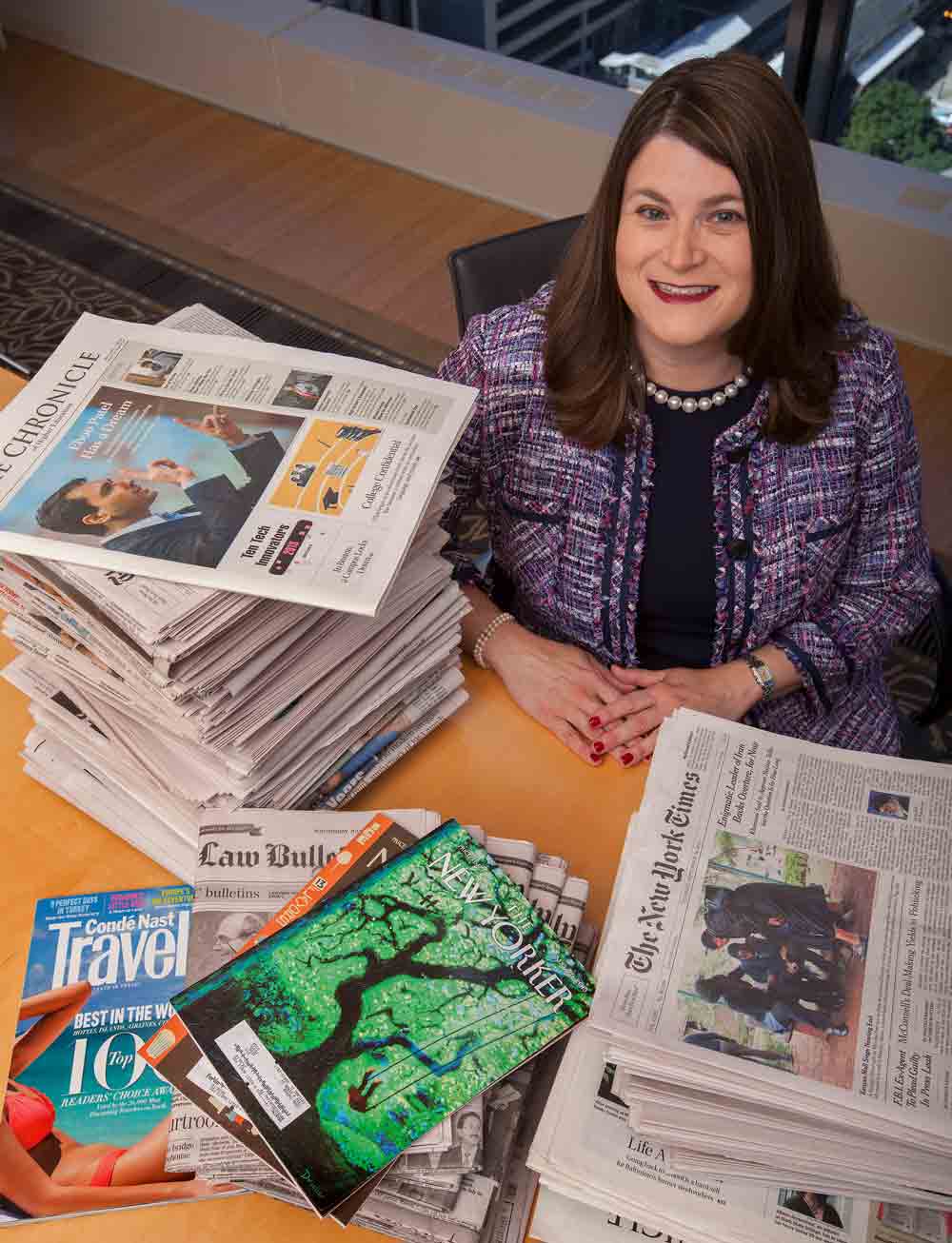For a college that is all about communication, it makes sense to engage students, faculty and the wider community in programs that can amplify their voice, encourage dialogue and forge connections. With this idea in mind, the college established the Center for Communication Engagement (CCE) this past fall to offer communication-based, problem-solving and research-based solutions for social innovation in a more accessible format. The CCE has three components that are at various stages of development: The Voice Project, labs and incubators, and community and organizational outreach.
Vincent de Paul Professor of Media Studies and Associate Dean Carolyn Bronstein explains why the college decided to establish the CCE: “I think that there has been recognition in the college that we have all these innovative and compelling projects around communicating with the public, yet we haven't had a way to organize them and make sure that they're working synergistically. The center joins them under one umbrella, so that we can ensure coordinated efforts. “Individual faculty members are administering different center projects," she continues. “I'm excited to be administering the Voice Project." Carolyn Bronstein (Vincent de Paul Professor of Media Studies, Associate Dean)
Carolyn Bronstein (Vincent de Paul Professor of Media Studies, Associate Dean)
Currently, the Voice Project encompasses the Op-Ed Project, a national thought-leadership training program in which diverse faculty write opinion pieces and letters to the editor on issues of social importance; public-speaking events and faculty resources in the areas of public voice and social engagement; and a partnership with staff in University Marketing and Communications to support TEDx DePaul University, an annual series of informative talks featuring “ideas worth spreading."
Bronstein says there are plans to have an annual Day of Public Voice. “This is going to be a student speaking event that draws speakers from our many sections of CMN-104 Public Speaking, as well as other classes where speech and performance are integral to the coursework." The event, which may be held in the atrium of the Lincoln Park Student Center, will resemble soapbox speaking of the past, as student speakers try to attract attendees and passersby to listen to what they have to say.
This Day of Public Voice encompasses many of the central goals of the center.
“It's about giving students opportunities to take the presentational skills they're learning in our classes and putting them into action in ways that are meaningful and create greater engagement with the larger community," Bronstein explains.
One lab is currently up and running—the Media Engagement Lab, administered by Assistant Professor Juan Mundel and Assistant Professor Nur Uysal. The lab is designed to conduct communication research for paying clients and the DePaul community while giving student researchers hands-on experience and a paycheck (see Conversations, Fall 2019).
Another lab in development for 2021–22 is the Virtual and Augmented Reality Communication (VARC) Lab, run by Professor Paul Booth and Associate Professor Bree McEwan. “The VARC Lab is going to be a site where students, researchers, instructors and even members of the community are going to be able to come and experience virtual reality in a nongaming way," Booth explains.
“For instance, as virtual meetings are becoming more and more common, how is virtual reality going to affect the way people are communicating over great distances in organizational settings? If you put a headset on and you actually can see the people sitting in a meeting, but everyone is there virtually, that may change the way you interact with them," he says.
“Or how is virtual reality going to be used in a new entertainment media environment? The average person isn't going to have all of the equipment they need to experience something like that," Booth continues. “So the lab will give students and researchers a chance to experience it."
Programs for community and organizational outreach will go beyond the labs. In discussion are the creation of a speakers bureau, a repository of service-learning courses available to community-based partners, and seminars and workshops available to the public.
“The CCE offers the college a way to introduce people to the expansive scope of programs offered in the College of Communication and the wide range of skills that students can develop with us. It's a way to showcase foundational areas of our curriculum, like public speaking, that are incredibly important for citizenship and a healthy democracy," Bronstein says. “Further, the goal of the center is to help people solve social problems through nuanced communication. That seems to me to be a very DePaul way to be in the world—to ask, 'How can we work through social problems by using human communication?'
“Giving students a chance to recognize themselves as powerful communicators is a vital goal of our college. We're training a whole generation of students here to develop those skills."
Originally published in Conversations (Spring 2020).